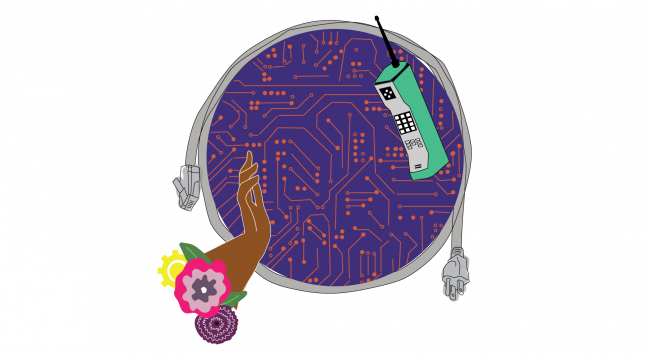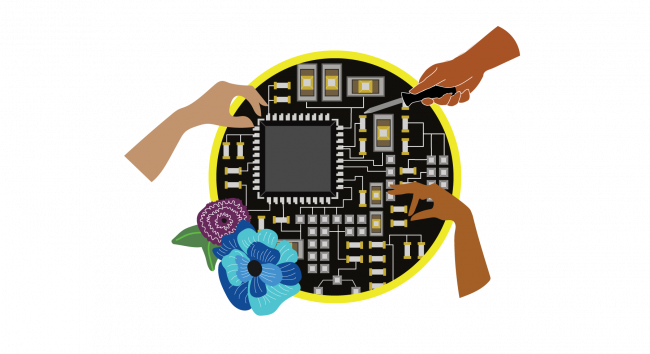Datafication
Access
Online gender-based violence
Economy and labour
There is an increased reliance on data driven decision-making (that uses algorithms) which impacts on people facing multiple forms of discrimination. This occurs in sectors dealing with welfare and access to government programmes and benefits, as well as in the context of social media, visibility of causes, movements and of people.
In relation to data, surveillance and the potential for biases embedded in algorithms, feminist research can surface the experiences of the non-normative body, where the norm is male, heterosexual and white, or made up of another dominant group, caste or race. A feminist approach resists data disembodiment and shows that the harm and benefits of datafication are embodied and have specific consquences for certain individuals and communities.
In particular, the knots in the conversation around gender-based violence (GBV) and freedom of expression need to be further unravelled, as feminist research will highlight questions about how we ensure that women and girls can fully participate in public life. The focus should be on the rights of people, legality/illegality of acts that can constitute online GBV rather than criminalisation, and understanding the harm it causes to individuals and groups.
Intrinsic to the question of online GBV is the binary of online and offline, and the need to understand the flow and distinction between them when it comes to researching, locating and privileging the diverse experiences of women and girls.
Some of the questions arising include: What does accountability look like for corporations and internet intermediaries? What policy changes can and should be made by the state? What impact have such changes made? How accessible are they to people who have been affected? What impact will proposed technological solutions have? Importantly, these questions must be asked from the point of view of the lived experiences of women.
In this area, an intersectional approach would bring to light specificity and gaps in a field where, despite greater emphasis being placed on gender, the issue of disparity persists – especially in specific territories where access is critical. In particular, looking at problems with access faced by groups of women located in the global South, the role of culture, norms and the intersectionality of issues such as gender based violence and discrimination that impacts on citizenship and rights.
Such access also encompasses unpacking issues such as inclusion, meaningful and substantial access, feminist infrastructure and access for other purposes (beyond economic or political empowerment).
The internet is a high-cost space for marginalised people because of the way in which gendered labour operates in manufacturing, in mining and in other extractive industries, as well as in new economic models such as crowdsourcing, and AI-driven, sharing and gig economies. Cheap labour in middle- and low-income countries, where labour regulations are not very stringent, is essential for the global information economy.
The difficulties in measuring the value of this labour are connected to the difficulties in measuring cultural production, shadow labour or care work. Often those who are “different” are hypervisibilised, and affective and immaterial labour is extracted from them. At the same time such people are invisible and their concerns and needs do not form grounds for significant change in structures of power. Within the nascent field of feminist digital economics, it is important to build from feminist “traditional” economics that looks at how shadow work and unpaid work by women and others in the domestic sphere and outside, including reproductive and carework, forms of affective labour online and other gendered labour are essential to how the information economy functions.
More about FIRN
The Feminist Internet Research Network focuses on the making of a feminist internet, seeing this as critical to bringing about transformation in gendered structures of power that exist on- and offline. Members of the network undertake data-driven research that provides substantial evidence to drive change in policy and law, and in the discourse around internet rights. The network’s broader objective is to ensure that the needs of women, gender-diverse and queer people are taken into account in internet policy discussions and decision making.




